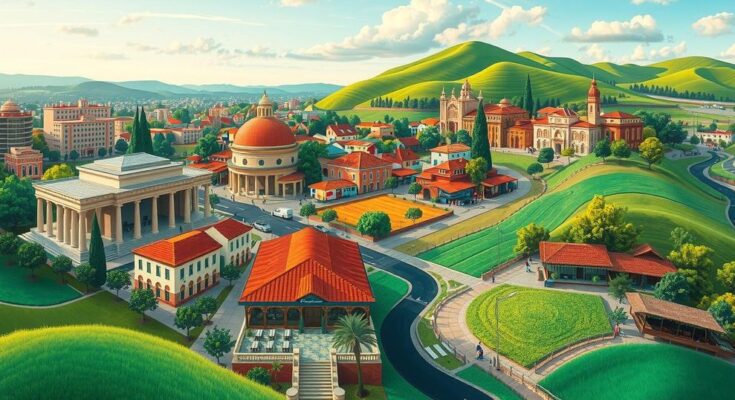José Mujica, Uruguay’s former president and a figure of political charm and complexity, died on May 13. His legacy is marked by a duality within Uruguayan society, oscillating between urban socialism and rural conservatism. While he gained fame as ‘the world’s poorest president,’ his economic and political decisions garnered mixed reactions. Mujica’s ability to adapt to public sentiment defined his charismatic yet polarizing role in Uruguay’s political landscape.
José Mujica, the former president of Uruguay, passed away on May 13, leaving behind a complicated legacy. To fully grasp Mujica’s influence, one must appreciate his deep roots in the diverse social and political landscape of Uruguay. The nation is divided between an urban, socialist populace of European descent, primarily concentrated in Montevideo, and a rural, conservative community. This duality shaped Mujica’s idiosyncratic character, reflecting both sides of Uruguay’s historical and cultural dichotomy.
Mujica emerged from a tumultuous history marked by civil strife in the 19th century, leading to periods of relative democratic success. However, frustrated with economic stagnation, Mujica, along with his comrades in the Tupamaros guerrilla movement, launched a violent uprising that ultimately resulted in imprisonment and military rule. Upon release, he transformed into a significant political figure, advocating for democratic governance and building his political party on populist sentiments, ultimately culminating in his presidency from 2010.
His rise to presidency was a tale of charisma and relatability. Mujica endeared himself to voters by living modestly, even amidst claims that he was the world’s poorest president. Anecdotes of his arrival at Parliament on a beat-up Vespa helped enhance that image. His humble lifestyle resonated deeply with the public, ultimately reinforcing his mythos. During his presidency, he maintained a low-key existence, even welcoming dignitaries while insisting they sit on repurposed chairs, displaying his disinterest in lavish displays.
Yet, opinions on Mujica’s presidency are sharply divided. While his leadership coincided with regional economic growth, he left Uruguay’s debt higher than when he took office. Critics point to his failure in delivering essential reforms, particularly in education, even as progressive legislation, like same-sex marriage and marijuana regulation, were enacted under his term. Interestingly, Mujica’s advocacy for these reforms seemed to mirror shifting public attitudes rather than personal conviction.
Mujica was politically shrewd, adept at reading the electorate’s evolving sentiments while shifting his policies accordingly. However, he possessed a reputation for ruthless politics, often starkly contrasting with his congenial public persona. His unfiltered language escalated the tone of political discourse, reflecting a departure from Uruguay’s previously genteel political discussions, with comparisons made to the rhetoric of figures like Donald Trump.
Even in his final moments, Mujica remained engaged with democracy, urging voters to support his political heir, Yamandú Orsi. His conflicting views, from critiquing business leaders to lambasting union heads, paint a picture of a complex figure driven by a nuanced understanding of the Uruguayans’ sentiment. Despite personal contradictions and political gambles, Mujica wielded a captivating influence, earning him recognition as a unique presence.
In a landscape filled with polished, career politicians, José Mujica stood out, leaving behind a legacy that is as captivating as it is controversial. The question may linger: Could he have achieved more using his political prowess? His duality reflects that of Uruguay itself—a proud nation grappling with its identity.
Martin Aguirre, a journalist and lawyer, writes extensively about Uruguay’s political landscape and is the newsroom director at El País, the country’s oldest newspaper.
In conclusion, José Mujica’s life and presidency exemplify the complexities of Uruguayan society. Emerging from a tumultuous political history, he blended the urban and rural struggles into his uniquely compelling narrative. Though his presidency witnessed significant social reforms, it was also marked by economic challenges and a polarizing legacy. Mujica’s ability to navigate both political extremes and his lasting influence on Uruguay make him a nuanced, if controversial, figure in Latin American history.
Original Source: www.eurasiareview.com




